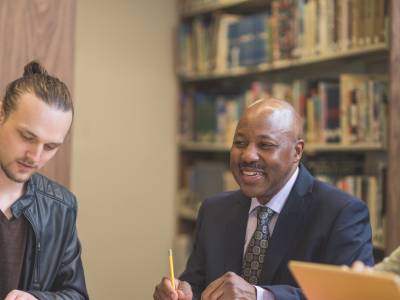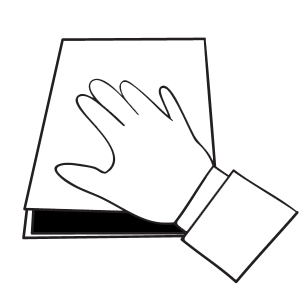Law According to Yale
The beginning
By tmalmine on Sep 23, 2006
Law according to Yale
This blog is devoted to legal, especially LL.M., studies at Yale Law School. The title of the blog has been borrowed from a short paper by Yale constitutional law scholar Owen Fiss, and it nicely conveys the essence of this blog. It is mainly about Yale and will concentrate on studying in New Haven, unlike some LL.M. blogs, which contain vivid descriptions of New York social life, arts, music, and what have you.
The author is a 29-year old Finnish lawyer, who began his LL.M. studies at YLS approximately three weeks ago. My fields of interest are legal history, comparative law, and legal theory. Additionally, I take keen interest in politics, comparative cultures, social theory, economics, and literature. I am, in short, a jack-of-all-trades-and-master-of-none. My current research project (dissertation) is a comparative study of the legal realist revolution in Germany, Sweden, and the United States. The study can be summarized into a one major question: What happened to private property after great democratization of the Western societies at the end of the 19th century, and what on earth had legal realism to do with it? I want to take a look at the discourses surrounding the institution of ownership at the time when Western societies were undergoing a major social and political transformation. I believe that such a project has never been undertaken in comparative legal history.
What has the YLS got to do with this? To the readers of the LL.M. discussion board, this question hardly needs ato be answered. YLS is one of the premier law schools in the world, and in my estimate, one with the strongest emphasis on legal scholarship (as opposed to legal practice). Yale educates a great number of future law professors and attracts many people, who are committed to legal scholarship.
This emphasis on teaching and scholarship is evident in the LL.M. program, too. YLS should probably not be the first choice for an aspiring investment banker or wanna-be associate lawyer at major law firms (even though YLS pedigree hardly closes those doors). In any event, most of my classmates dream of being future teachers of law. This distinguishes the Yale LL.M. program from most other programs in the US.
Personally, I had additional reasons to choose YLS over HLS, Columbia, Michigan, Virginia, Cornell and Georgetown (other schools I was accepted into). Yale is arguably the world leader in the fields of legal history and comparative law. Having said that, I have to admit that I was a bit disappointed to find out that James Whitman is on a leave of absence this year, and that Bob Gordon is not teaching legal history. If you are planning to apply to Yale, do bear in mind that it is a small community and very generous with leaves. If you plan to come here to study with certain professor, ask him whether he will be here.
After this initial disappointment, I have become convinced that I made the right choice. I’m taking a course on history of the common law, given by John Langbein, and it’s simply superb. In October I’m taking a course titled "Race and Constitution in American Legal History," by Mike Klarman, one of most distinguished legal historians of his generation. I’m also studying social theory with Jeffrey Alexander (at the department of sociology) and torts with Guido Calabresi (just to see how law is taught to first-year American law students). All courses are extremely good. If you have interdisciplinary aspirations, I urge you to take a look at other departments’ course offerings. Yale, for instance, has very strong history, political science, and sociology departments. The same goes for other major research universities as well. Most LL.M. programs allow students to take some courses outside the law school, and this should be one consideration when you're choosing the program.
Is YLS the best law school in the world? I don’t know. Sensible persons understand that a question like this is impossible to answer. I do believe, however, that YLS is a very special place. Law school itself is beautiful: smallish, neo-Gothic, faux-Oxford type of place. It has amazing faculty, great student body, and it’s attached to one of the premier centers of social science and humanities in the world. Both JD and LL.M. programs are relatively small, which creates a personal and cozy feeling that I enjoy very much. New Haven itself has exceeded my expectations. It’s certainly not New York, but it’s hardly the awful, violent ghetto it’s sometimes portrayed either. At best, in a sunny day, it’s a traditional East Coast college town with beautiful campus and lots of restaurants and cafeterias. If your main objective is to have a year off, enjoy life, and party as much as possible, I suggest you go to New York. The median age in the LL.M. program is 30, many students have families with them, and everyone is strongly committed to their studies. Yale experience is first of all an educational experience and the social life is correspondingly different from some other law schools, concentrating mainly on intellectual exchange. The spirit of the program is very collegial: Most of us are specializing in different fields and returning to our home countries after the program. There is no sense of competition at all between the students, unlike in some other LL.M. programs.
My future postings will include, for instance, following ones: "How is law taught at Yale", "Some YLS faculty personalities", "Want to write your dissertation in the US: what you should know", and "Applying to YLS: tips and suggestions". If you’re interested in YLS, stay tuned.
Best,
Toni
Some tips about applying
By tmalmine on Oct 10, 2006
Applying for LL.M. Programs
Undoubtedly the most difficult part of your LL.M. project is applying for different programs. For many, it’s the first time writing personal statements, CVs, and other documents in English. Application forms are sometimes difficult to fill and you can never be sure what law schools are looking for in applicants. Additionally, posting paperwork to the United States may be expensive. I hope the following tips will make your life a little bit easier in this regard.
Should I use LSAC’s authentication service?
It depends. LSAC is a service provider, which verifies foreign transcripts and evaluates them. The main benefit of using their service is that you don’t need to send your transcripts to every law school you want to apply to: it’s enough to send them to the LSAC, which verifies them and evaluates your credentials. They seem to use two-tiered assessment: either you’re "superior" or just "average". Once you have paid the service and sent them your transcripts, they will send them, along with their own evaluation, to all the law schools you are applying to (the initial fee covers five schools; if you apply to more than five, you have to pay an additional fee). There are two things to consider before paying for the service. First, because the service is costly, it’s helpful only if ordering transcripts in English is expensive in your country. Second, not all people are satisfied with their evaluation. I was rated "superior" and felt that the assessment was fair and made in a professional manner, but bear in mind that they might rate you as an average student, even though you think of yourself as a super achiever. If you’re not satisfied with the assessment, you can ask for a re-evaluation, but it, too, costs. So, at the end of the day, LSAC may be risky. Nevertheless, I was satisfied with their service. It saved me money and paperwork. If you want to find more about them, see their webpage (https://llm.lsac.org/llm/logon/splash.aspx).
Do I need the be the best student in my country/of this continent/of my law school, or be at the top 2/5/10 % of my class to get accepted to Yale?
Not necessarily. All American law schools purport to have gender diversity, geographic diversity, diversity of interests, and all sorts of diversity. This makes admissions procedure somewhat arbitrary, or at least unpredictable. It’s almost impossible to know beforehand, who will get accepted and who will be rejected. Therefore you should give it a try, even though your grades are not superb.
You do have to convince the admissions committee that you’re one of the top lawyers in your country. But there are many ways to do that. If you’re grades are not perfect, perhaps you have interesting work experience, or impressive pro bono experience, or major merit scholarships, or whatever. If you’re convinced that you would like to study at YLS, why not give it a try. Having said that, I must admit that many people in the graduate program have excellent grades, some have degrees from Oxford or Stanford, and some have quite impressive work experience. Some, however, have less impressive record of merit (I’m one of them) and still they have been accepted.
I need a letter of recommendation. I don’t know any "top guns" in my field, and my own thesis advisor is not a well-known scholar outside my country. Should I try to get a letter from this famous professor whom I don’t really know, but who is my countryman and might write me one? How about asking my former/current employer for a letter of recommendation?
LORs are obviously an important part of your dossier. I believe that the most important thing with them is that they’re written by people who actually know you. If your advisor happens to be a world-famous professor, it will probably carry extra weight. But even if no one at Yale (or Harvard, or any other law school) has heard of your advisor, it doesn’t matter. They are not assessing the person who’s recommending you, they’re assessing you. The LOR should be detailed, not just a general statement ("X is a brilliant student and I really hope he gets to Yale"). It might be helpful to explain to your recommender that you’re applying to an American law school and remind him of using superlatives--here "good" means something like "he’s not a drug addict" and "great" something like "I’ve seen worse students."
I believe the most important LORs are those written by your former professors or thesis advisor. You can send one written by your employer, but being an employee differs from being a student, and consequently, it will carry less weight. If you happen to know the Dean of your law school, beg him to write you a recommendation. In the US, the Dean is a Big Man and his statement can make a difference.
How about personal statements?
I recommend you to concentrate on your study objectives and career-related things. Don’t try to be funny, I think it’s too risky. Things that might be extremely funny in your country might be considered to be in bad taste here, or just plain stupid. It’s safer--if boring--to explain why you want to study in the US, how an LL.M. program fits with your future plans, and why you have chosen to apply just to this or that law school. Just saying things like "Yale Law School is the best law school there is" is to be avoided. No one will be interested in that sort of stuff. What you can do--and many people do--is to name some professors you want to study with and then explain why you’re interested in their scholarship. Otherwise writing a personal statement is literally personal, it’s up to you to make it as interesting as possible. Additionally, I suggest you to show it to a native English speaker to make it look polished.
We have no class rankings in Oceania. How can I describe my credentials to Americans?
The easiest thing to do is to write a memorandum of the your country’s grading system. I wrote a two-page memo about the Finnish grading system evaluating my grades, merit scholarships etc. against the Finnish system. Along with your transcripts, CV, personal statement, and the letters of recommendation, this should give to the reader a clear picture of your academic credentials.
If you have further questions, do not hesitate to ask.
Best,
Toni
The Pros and Cons of the Yale Law School
By tmalmine on Nov 10, 2006
Now that the deadline for LL.M. applications to the YLS is getting nearer, I thought it might be useful to summarize the strengths and weaknesses of this school. Then it’s up to you to decide whether Yale really is the best place for you.
I will start with strengths as I think they outweigh the weaknesses.
- Yale Law School is the best law school in the world.
I think one can plausibly argue that this is true. Ever since the U.S. News began to rank law schools, YLS has been number one. Likewise, Brian Leiter's impact study ranks Yale highest. Many YLS scholars are, without a doubt, leaders of their respective fields. Yale is extremely strong in law and economics. Although law-and-economics movement originated in Chicago and Hyde Park still remains a magnificent place to study L&E, Yale is not far behind. The main difference between these schools seems to be their "style". Whereas Chicago L&E has traditionally had a libertarian bent (although Cass Sunstein, for one, makes an exception), Yale approach is quite different, being much more open minded vis-a-vis government intervention. While Chicago has some of the most famous pioneers of this approach, Yale can boast some impressive names, too. Guido Calabresi, John Donohue III, Ian Ayres, Alan Schwartz, Jules Coleman (mainly a critic of L&E), and Robert Ellickson, to name a few, provide plenty of opportunities to study law and economics.
Same goes for constitutional theory. Yale faculty includes Bruce Ackerman, Akhil Amar, Jack Balkin, Robert Post, Jed Rubenfeld, Owen Fiss, Paul Kahn, and many others renowned constitutional law scholars. In comparative law and legal history, Yale is arguably the leader. John Langbein, Mirjan Damaska, and James Whitman is an exceptional trio in this field. Additionally, Yale is strong on corporations, human rights, legal philosophy, and torts. Some fields that are not strongly represented here are international economic law, intellectual property rights, and critical legal studies.
In addition to its faculty, Yale’s strengths include small but superb student body (80 % of American students, who are accepted to both Yale and Harvard, choose Yale), financial resources (I think Yale is the richest law school per student in the US), and the strong research university to which it is attached.
Yale is the most academically oriented law school in the US.This is obviously a strength to those who aspire for a career in academia. Many students at Yale aim for a career in teaching and scholarship. This makes the atmosphere quite academic. Here you don’t have to explain to everyone why you want to spend the rest of your life reading and writing (and being poor). Many courses are research-oriented. The library is splendid. Milieu is intellectual, at least by law-school standards.
A degree from Yale Law School is a good merit, especially in the US.New Haven is close to New York.There are not too many diversions in New Haven (it’s easy to concentrate on your studies).Cons
- New Haven is not the best place on earth to have fun.
If your main objective is to have as much fun as possible, go to California or NY. New Haven is not really a great to place have fun, and Yale LL.M. students are quite nerdy (me, too). If you’re a single, don’t expect anything really hot here. This is a haven for study and scholarship, not for living a bachelor life. Sometimes I wonder is anyone having sex here. People are just so busy all the time.
Yale law school being a small school, course offerings may be disappointing. For instance, most constitutional law scholars are stuck with the first-year courses during the fall term, and consequently, are not giving any other courses.Yalies are busy.Even though this is a small law school, don’t expect professors to spend their time on you. Sometimes they won’t read your papers. Sometimes they are eager to get you out of their office. I believe it’s better here than in some other law schools, but don’t expect to be treated like a prodigy. These professors see so many talented students every year that it takes a miracle to make them take an interest in you.
Yale is not the best place for practicing lawyers.You won’t probably make as much good connections here as in Columbia or NYU. Most LL.M. students intend to go back to their home countries to teach, or continue with their JSD here at Yale. If you want to make it to New York Biglaw, go to New York.
5. Yale, Yale Law School, and Yale LL.M. program are not as famous internationally as Harvard (personally I don’t think it makes much of a difference but it may be important to you).
Here are the main pros of cons of the YLS LL.M. program. Now it’s up to you to choose whether this would be the best law school for you to study. Whatever you decide, good luck!
One day in my life
By tmalmine on Nov 30, 2006
Just another day at the Yale Law School
Many of you have probably been pondering questions like: "what will my life in the US be like?" or "what is it like to study in an US law school?" etc. Although I cannot give definite answers to questions like that, I thought it might be useful to describe one day of my life here, to give you a glimpse of what life of an LL.M. student is like. So, let me tell you about my Wednesday, November 29th.
I woke up at 9 AM. I was supposed to have my torts class with Guido Calabresi at 8.30, but I missed it. In the beginning of the fall term, I attended all the classes very conscientiously, but now that it’s getting dark, cold, and busy, I find myself skipping classes every once in a while. I have a paper due next week, and it’s taking all my energy and time, so classes suffer. Fortunately, Yale professors don’t keep track of students’ attendance, so basically you can skip some classes if you feel like it. Calabresi is a great teacher, but torts is not really my field, so I don’t feel guilty skipping it from time to time.
At 9.45, I had my jurisprudence class. It is taught by Jules Coleman, one of the most distinguished analytic legal philosophers in the world. Actually, Coleman is the only jurisprude at YLS, and he appears to feel a bit lonely here. Yale is heavily oriented towards public-policy issues and conceptual analysis is not really fashionable. For those of you who really want to specialize in analytic jurisprudence, Oxford or NYU might be better choices. Coleman himself is a fantastic scholar and teacher, but I have come to realize that jurisprudence is not my cup of tea. I want to understand how law works in society: its sociological, cultural, and political roots, if you will. Frankly, I don't think analytic philosophy has much to contribute to that enterprise.
One of the common misunderstandings about the US legal education is its supposed rigorous, Socratic methodology. I have yet to encounter a Socratic teacher at Yale. Chicago has a reputation for emphasizing this method but it seems to be an exception nowadays. Most students I’ve talked with have a feeling that teaching here is much closer to European-style lecturing than they expected. I have nothing against that. When I’m in class with some of the best legal scholars in the world, I want to hear what they have to say; not what 1Ls or LL.M. students think. But some people are disappointed with the lack of discussion in some courses.
At 11.10., I had my legal history class. This is probably my best class so far. John Langbein has taught history of the common law for decades, and he’s one of the great authorities in the field. We are reading old statutes, cases, and contemporary scholarly writings on the subject. Materials are excellent, giving a great overview of English legal history. This is the class I would recommend to every student who comes to Yale and has even a slightest interest in legal history.
After the history class, I ran into a law teaching workshop at the faculty lounge. Yale organizes annually a law teaching series, because there are so many students here who are interested in teaching. Three YLS graduates talked about law-teaching market, job talks, and about creating research agendas. Quite interesting. Additional bonus with all these workshops is that there is usually a free lunch (contradicting the old adage). One of the best things about LL.M. programs is that great American research universities have so many interesting visitors, workshops, panels, and what have you. It takes a lot of time, but you get to see really interesting people from all over the world.
I got home at 2.15. Wednesday is usually quite a heavy day, because I have lots of classes on Mondays and Wednesdays. On other days, I have much more time to concentrate on my own research. My own experience is that you have more free time during your LL.M. year than people usually admit. Everyone keeps saying that LL.M. programs are really rigorous and you’re studying all the time and it’s really hard… I would take those horror stories with a pinch of salt. There is lots of work to do, but if you’re used to working hard (most lawyers are), LL.M. program will not be that demanding. Those who have the degree just have an incentive to exaggarate how difficult it was to obtain it.
After classes, I continued with my usual routines: went to a post office to mail a check to a utilities company, then to a grocery store, and then did some laundry and exercise at our residential building recreation center. My life outside the law school here is pretty similar to my life in Finland. I think that the US is much safer than many people think. Whatever social problems there might be, they don’t really touch me.
That was a pretty typical day of an LL.M. student, I guess. Please ask me if you have further questions about living in the US etc.
Mid-term Finals at Yale Law School
By tmalmine on Mar 21, 2007
Finals at YLS
It has been quite a while since I updated this blog. In December, I was busy preparing for the exams. Then, after the exams, I wanted to wait for the results. I’m still missing one grade, but it’s a credit/fail course so there’s not much to wait for. Here’s a short description of the exam system at Yale for those who are coming to study here or otherwise interested in the topic.
YLS Finals are in January and May. Unlike in some other schools, the exams are usually open-book and consist of several essays. My legal-philosophy exam, for instance, comprised of two essays. I had 48 hours to finish it. The students were allowed to use any materials they wished; the only limitation was that the overall length of the essays was not to exceed 10 pages. Legal-history exam had three essays and a 24-hour time limit. Torts was three hours and two questions (an essay and a case). Torts was closed-book, but a credit-fail, which balances the stress factors.
This system has its advantages and disadvantages. Generous time limits in open-book exams make it possible to write very good essays. On the other hand, other students, too, have lots of time; this means that there are lots of good essays. YLS has a reputation for extremely generous grading. Although there is a grain of truth to this, the point is easily overemphasized. The law school has a three-tiered grading system: low pass, pass, and honors. Low pass is rarely given. Honors depend on the professor. Some award it to 10 % of the class participants. This happened in one of my classes. Out of some 30 students, 3 got an “H”. I wasn’t one of them. So far, I have been awarded two “Passes” and one “H”. Initially, I was disappointed with the results. After some reflection, I became more realistic. If three students out of 30 are given honors, I would have to beat 26 American students to make it. American students at YLS are brilliant and they enjoy a definite home-field advantage (writing in their native tongue, for starters). I read some of the honors papers and they were superb, both analytically and linguistically. For a foreign student to write with similar command of English would be a protean task indeed. Additionally, American students have studied four years in college and possibly two years in law school. That is significant experience in knowing what American professors are looking for in an essay. Perhaps it’s not a realistic goal for foreign students to aim for the highest grade in the most competitive classes.
If you’re simply looking for grades, it probably makes sense to choose smaller seminars and paper-based courses. In those professors are more generous with grades. I do believe, however, that if you have studied at YLS or at other top American law school, your grades are not extremely important (if they are decent anyway). If you intend to apply for a job in an American law firm, your assets will most likely be foreign languages, contacts in your home country, and knowledge of a foreign legal system. No LL.M. can beat all his American competitors solely on the basis of grades. And if you return to your home country, you have definite linguistic, social, and intellectual assets that should give you enough advantage even without stellar grades.
My next posting will be on courses and teachers at YLS. It will be available later this week. After that, I will probably update this blog once more, summarizing my experience. My LL.M. studies are drawing to a close; soon one of the new LL.M. students at YLS should start his/her own blog:)
Best,
Toni
Law teaching at the Yale Law School
By tmalmine on Mar 24, 2007
I promised to post something on law teaching at Yale. Law is taught somewhat differently in American law schools than, say, in European universities. In this posting, I wish to highlight some of the great courses I've had here. This is an entirely uncritical post; it should be read as an recommendation to some classic Yale courses. But first a few words about teaching in general.
A typical course here lasts the entire semester, sometimes they are year-long. Course meeting often take place once a week but occasionally every day (Calabresi's Torts) or three times a week (Ellickson's Property). The course closes with an exam or with submission of a seminar paper.
The main difference between my previous legal studies and studies at Yale is that you actually have to read something before the class meeting. The length of assignments varies from 40 pages to 800-page volumes. Because one is simultaneously participating in 3-5 courses, weekly readings can be enormous. No one reads everything, I fear. It's impossible. I tried to read as much as I could, but often just skimmed through the material. The readings can be books, articles, or (most commonly) book chapters and excerpts from articles (and cases, of course). This is very nice. In Europe I read textbooks. Course materials here have been gathered from various sources and that makes them more interesting than textbooks.
Another big difference between Europe and America is the way teaching is conducted. Europeans still rely on lecturing: class discussion is not very lively. At Yale, most class meetings consist of student discussion moderated by the professor. Somewhat paradoxically, my best course here was lecture-based (see below).
One distinctive fact about teaching at YLS is the almost complete absence of "Socratic method." Only professor I have met here who actually practices it is Robert Ellickson. Even his approach is quite different from the legendary Professor Kingsfield of the Paper Chase fame. My feeling is that Socratic teaching has lost some of its former status, perhaps because legal studies have become more interdisciplinary.
Here's some my favorite courses at Yale.
History of the Common Law (Professor John Langbein)
This course is a classic. Professor Langbein has been teaching it for decades (first at Chicago). He is one the leading historians of the common law, especially its procedure. The course covers almost the entire history of the subject, from the 11th century to the legal realist revolution. The emphasis is on the law of procedure, but trusts, contracts, and crime are discussed as well. The class materials are excellent. Professor Langbein lectures, and although students are allowed to ask questions, class discussion is mostly absent. I found this superior method of teaching legal history. Not many students can discuss the topic competently. This is a superb course, and if you have even the slightest interest in legal history, take this course!
Property (Professor Robert Ellickson)
Another Yale classic. Professor Ellickson is generally recognized as the best class-discussion moderator of the school. His course covers the economic, historical, philosophical, and psychological dimensions of property law, but the main issue is land ownership. Meetings usually begin with a short introduction, followed by class discussion. The materials are fascinating. Highly recommended!
Some other courses I suggest you to take a look at are:
The Social Organization of Law (taught occasionally by Austin Sarat, who visits Yale every now and then). Covers issues like self-defense, capital punishment, police violence, prerogative of pardon etc. Sarat is an excellent teacher.
Legal history and comparative law by James Q. Whitman. Professor Whitman is one of the most interesting figures in these fields, but it's not certain whether he will be here next year.
Law and religion by Anthony Kronman. Professor Kronman is conducting research on this topic and teaches annually a seminar on related topics (this year Hobbes, Spinoza, and the Enlightenment Critique of Religion). He's a great teacher and a very nice man.
Well, here are some glimpses at the law teaching here. If you accept Yale's offer, you will be granted access to law school intranet, where you will find more student assessments. Look at them carefully. The semesters begin with a shopping week; during that time students are allowed to add and drop courses at will and to go from classroom to classroom to see if they like the teacher. Use the opportunity.
If you have further questions about courses etc., leave a comment here.
Best,
ToniGoodbye Yale and the LL.M. Board
By tmalmine on Sep 09, 2007
This will be my last posting on this blog. I was graduated from the Yale Law School in June 8th. Our commencement took place in May 28th. It was a very special day: My girlfriend flew from Austria to participate. It was a sad day, too—a day of many farewells.After the commencement, I moved back to Finland. I also decided to start looking for a new job. As some of you may remember, my original plan was to continue teaching after my LL.M. studies. Due to several personal and financial reasons I made a change of plans. I will soon start practicing in a major Finnish law firm. I hope to continue working on my dissertation, though, whatever it requires. My new job will be anti-trust advocacy, and I’m delighted to say that I’m looking forward to it.
Was Yale LL.M. worth it? For good and ill, the past year was one of the most remarkable periods of my life. Great studies, great friends (S. and M.,especially, will stay in my memories), great times, great life. I believe that my year at Yale had a profound impact on my scholarly vision--and on my personality. Whatever the future holds, I am better prepared for it, thanks to Yale.
This will be my last post on this board. I found the board in December, 2005. During the past 18 months, I have posted c. 250 messages, sent and received approximately 200 personal messages, and my blog updates have been read about 200 000 times. I have met several people here with whom I still correspond via email (or Facebook). It has been a great community. But I’m old news now. New students have taken over the responsibility for circulating the common wisdom of this board. I will step down now, sending my best wishes to all of you out there.
Yours truly,
Toni
Harvard v. Yale: the ultimate contest finally decided!
By tmalmine on May 12, 2010
I was fortunate to join the Harvard Law School Community in August 2009 as a visiting researcher (for a full academic year). This opportunity also brought this blog to my mind. I attended the Yale Law School LL.M. program in 2006-2007 and blogged during my studies. Now that I have a little bit of experience of both Harvard and Yale, I thought I should once and for all resolve the perennial question of American legal education: HLS or YLS. But before announcing my verdict, let me summarize some of my main findings:
(i) New Haven v. Cambridge: Cambridge is the better place to live, New Haven is closer to New York. Cambridge feels safer, New Haven gives a more rounded portrait of America.
(ii) Faculty: both have superb faculties, of course. Both are especially strong on legal history, constitutional law, law and economics, administrative law, and criminal law. Harvard probably has stronger business-oriented curriculum. Yale is strong on analytic legal theory while Harvard has the best crits in the country. What's your cup of tea?
(iii) Student body: both schools have outstanding student bodies. Harvard's is more diverse, bigger, younger, more business-oriented. Yale's is more interdisciplinary (lots of PHDs in different fields), more scholarly, older, and more relaxed (my impressions are based on a very limited selection, so take these characterizations with a pinch of salt).
(iv) Opportunities for doing research with professors: Yale has more. Hands down.
(v) Opportunities to forge international networks, especially in law firms etc. Harvard provides more. Hands down.
(vi) Better-looking students: let's face it, most of us are geeks. Undergrads are hotter in both universities than law students.
(vii) Library: both are immensely good. Harvard is the biggest in the world. Yale has more carrels.
(viii) Physical facilities: Harvard Law is huge, Yale feels homey. Whatever you prefer.
So which one is better?
Try to attend both. I was lucky enough to do it; both have been richly rewarding experiences. Whichever you choose, you cannot go wrong with either Yale or Harvard. Good luck!
LLM News
LLM Articles
Why Tech Law is the Hot New LL.M. Focus in an AI Era
Nov 14, 2024
Schools are helping lawyers prepare for a fast-changing legal world impacted by AI and developing technology. Students can benefit from a cutting-edge curriculum and new job opportunities.
Connect with Top California Law Schools
Nov 07, 2024
The California Law LL.M. Consortium is giving prospective students in Milan and London the opportunity to meet school and admissions representatives. They will hear about top legal issues and learn about how a U.S. LL.M. can benefit their careers.
Leaping Back into Firm Life After an LL.M.
Nov 05, 2024
Leaving school behind can feel daunting but if a graduate understands the different expectations and is conscious of new technology, it can make returning to a firm that much easier.
Making the Most of Your LL.M.: Why Extracurricular Groups Matter
Oct 28, 2024
Activities outside class time can give students a more well-rounded experience during their degree. They can build crucial skills and expand a student's network to benefit their post-school life.













